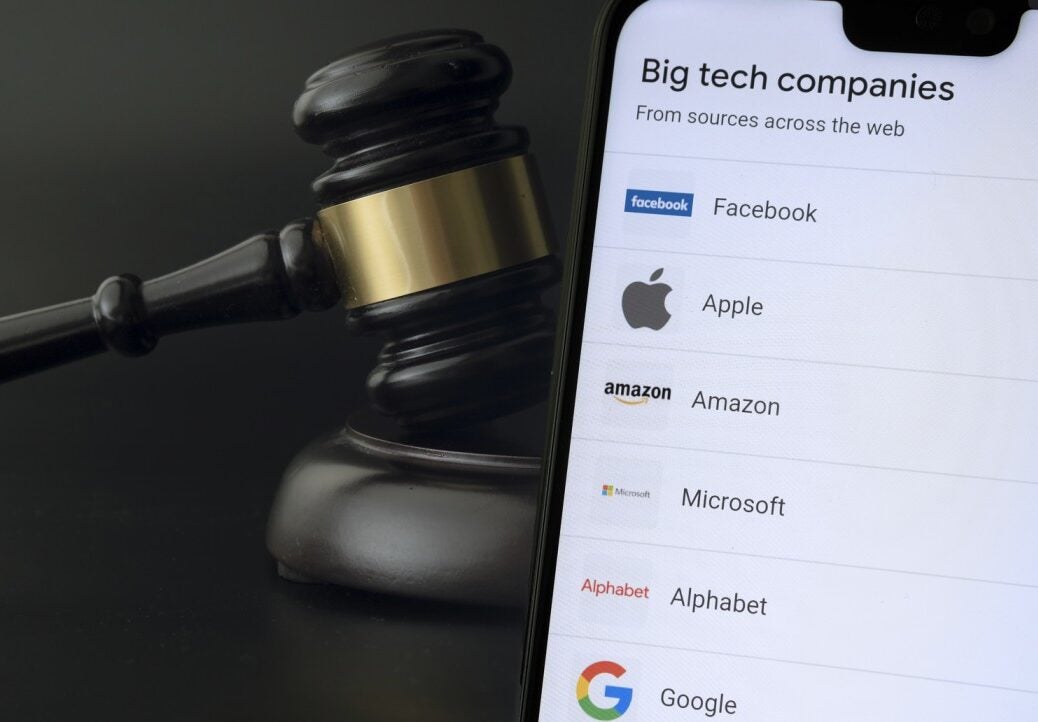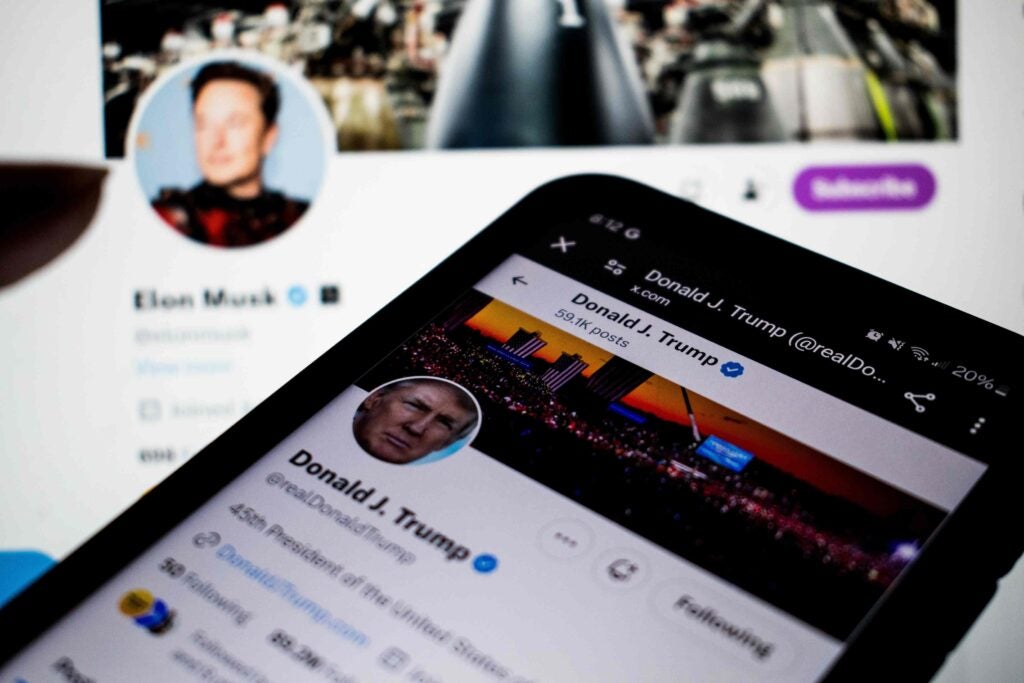
As a reader of Spears you are in a fortunate minority.
You are accessing information produced by professional journalists, editors and contributors. Without wanting to make assumptions, I suspect that you are also likely to access news and comment, including on topics that may impact your political views, via responsible broadcasters and national newspaper and magazine publishers. But you and I are the diminishing few.
Our children, younger colleagues and vast swathes of the world’s population are provided information, and provide information (sometimes unwittingly via cookies), using platforms and algorithms established by a relatively small number of corporate institutions based in the US, and one in China. And as a media lawyer with 25 years’ hard-fought experience, I have never been more concerned. I am concerned about its impact on our democracy, but also on the value we place on reputation, discretion and privacy. These are valuable commodities that we are losing at our peril.
And we are seeing the consequences now.
During the recent US election campaign, social media enabled extremist voices and promoted stories of pet eating immigrants, of the democratic candidate being involved in a hit a run offence and even of the weather being manipulated by malign forces. Perhaps this nonsense had very little impact on Trumps’ sweeping electoral victory, but there is no question that his online campaigning and the support of Elon Musk bolstered his support in defiance of the reporting in the traditional US media.
Musk’s recent interventions into UK politics have been equally striking. In the summer of 2024, in the wake of the anti-immigration rioting following the Southport stabbings, Musk tweeted that “civil war is inevitable” in Britain.
Most recently, he has posted that “America should liberate the people of Britain from their tyrannical government”. Whilst X may be a public forum rather than a news publisher, Musk has ensured (as owner of the site) that his own account has the greatest reach, and that reach is beyond anything a newspaper baron could ever have dreamed of.
And this reach has led to immediate reward for Musk as a central figure in the incoming Trump administration. His musings are absorbed in every corner of the globe and carry enormous weight. And just as Musk removed any attempt at restraint from X, Mark Zuckerberg’s Meta has announced that Facebook will follow suit, removing its use of fact checking ‘to get back to our roots around freedom of expression.’
Misinformation, defamation and misuse of private information are not new. Nor are many of the consequences. Reputations have been left in tatters by the publication of falsities and intrusions into private and confidential information since the dawn of the printing press, and political elites have always sought to manipulate public opinion by spin, propaganda and form alliances with those buying ink by the barrel. But Musk’s political and communication overreach through X, and Facebook’s latest capitulation demonstrate how uniquely exposed we now are.
[See also: The best reputation managers]
The personal impact on us, and particularly our children, of unrestrained digital content fed to our phones, is already being felt. Sexual, violent and self-harm content, have led to lost and ruined lives. Posts from stalkers or those carrying an animus destroy reputations and expose images and information that should remain private.
We see this on a daily basis. Social media sites provide the means for this wrongdoing and want no responsibility for the consequences. And Facebook’s latest position makes it clear how they, like X, consider political discourse should be a free for all. This despite the knowledge that, in addition to their own overt political campaigning, their sites may be used to facilitate dark-arts political campaigns such as those we saw from UK firms Cambridge Analytica and Bell Pottinger in the last decade. It needs hardly be said that increased utilisation of AI will provide rocket fuel to these behaviours.

So what, if anything, can we do about it in the UK?
There are two important principles we must hold on to.
First: this country is home to some of the most brilliant journalists and important news publishers and broadcasters in the world, with global reach and influence. Their US equivalents are being hammered into potential obliteration following their failure to capture the zeitgeist that has swept Trump to power again, and given fuel to Trump and his supporters with their “fake news” mantra.
In the UK our national newspapers took a deserved scolding during the phone hacking scandal, and they are still paying a heavy price for it. Despite having been held responsible for industrial scale misconduct, the press fought bitterly against the government’s attempt to impose a regulatory system and even succeeded in lobbying to weaken defamation law making it far harder to challenge inaccuracy.
[See also: The best reputation and privacy lawyers]
My view is that responsible news publishing brands must embrace mechanisms, including effective independent regulation, that impose and encourage high standards and accuracy that will help them stand out from the online crowd. Publishers such as the Mail, Times, Guardian, BBC and others have demonstrated that their brands can cut-through and attract worldwide online readership and the funding models can work. We should go further in promoting and funding responsible UK news brands so that our children learn to access an alternative to the apps currently in use on their phones and to ensure that local news can be revived online following the collapse of many local newspapers.
Second: we must resist economic and diplomatic pressure to weaken our attempts to protect adults and children from the worst of social media.
The Online Safety Act is in its infancy and it remains to be seen how effective Ofcom, empowered by the new Act, can be in policing the social media giants. But we must not allow Trump, Musk and co to use trade negotiations to diminish this country’s attempts to protect its people from the consequences of the US media giants’ most harmful excesses.
I applaud the Brazilian Supreme Court for banning X from that jurisdiction whilst it was in breach of its Court orders, and we must be prepared to make equally brave decisions. Trump’s ‘America first’ rhetoric seems difficult to square with one of his first steps in his 2nd term: disempowering the US Supreme Court’s ruling against TikTok despite it being found a threat to national security.
The increasingly wild social media sphere means that UK lawyers like me have plenty to do, but we also need the Government and the Courts to have the courage and imagination to help protect our client’s rights against these corporate behemoths without fear or favour.
The US is permitting the combined evils of a mass media abandoning all standards and becoming amalgamated with its erratic political leadership. In China, the association of the media with a hostile political leadership should be taken for granted.
A diet of information offered from these sources is not healthy. It’s time for Britain to get tough on tech.
[See also: Navigating the reputation risks posed by AI]
Dominic Crossley is a media and reputation lawyer and a partner at Payne Hicks Beach






